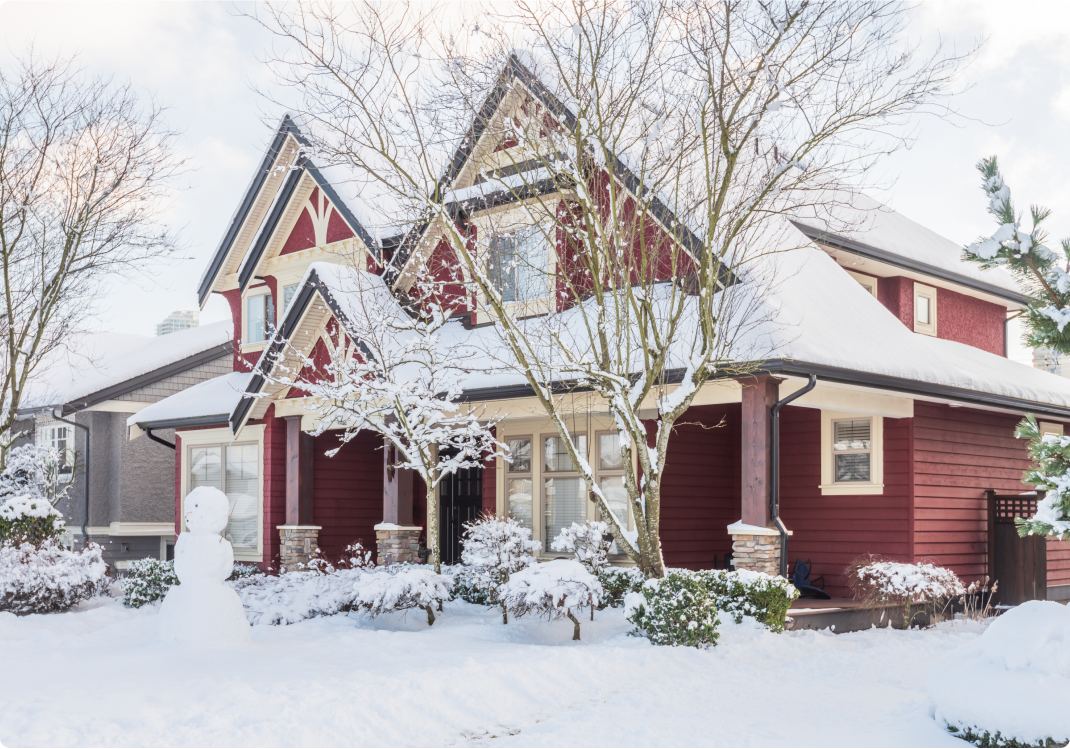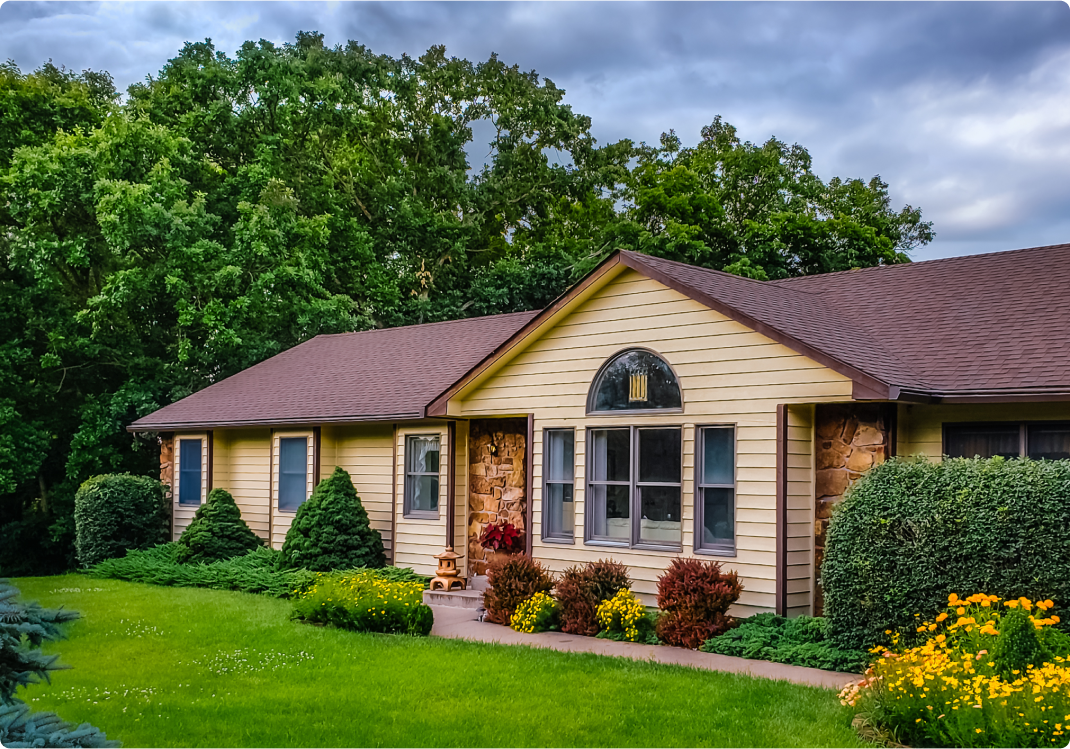Whether you’re flying the coop for the whole winter or taking a long holiday vacation, winterizing a vacant home before leaving is important. If you don’t take precautions, you could end up coming home to some serious and expensive damage. Follow the checklist below to learn how to winterize a vacant house and help avoid any unwanted surprises when you return.
Turn off the water supply
The most important thing you need to do, especially if you’re leaving a house unoccupied for the entire winter, is shut off your water supply. Leaving the water on when the lines aren’t going to be used can lead to a leak or burst pipe, which can cause a lot of damage. Shut your water off at the main valve, usually located outside. If you have a well, simply shut the breaker to the pump.
Tip: If you’re not going to shut off the water supply, you should leave some water running through the pipes. Turn on the fixtures closest to where water enters the house and at the farthest point indoors, like an upstairs bathroom, so there’s a steady trickle. The water needs to be constantly flowing to avoid a problem.
Drain the water lines
When you shut off your water, you don’t want any water to remain in your pipes or they could freeze and expand. So drain your water lines by opening all the faucets in your home and flushing all the toilets. Allow the water to run until it becomes a slow drip. After the toilets have drained their tanks, flush them one more time to empty the bowls. If your water supply comes from a well, drain the pressure tank.
If you’re going to be shutting off the pilot light to your water heater, you will want to drain your water heater as well.
Insulate pipes
Whether or not you turn off your water, it’s a good idea to wrap insulation around your pipes, especially those leading to and from your water heater, and any pipes exposed outdoors or in unheated areas like garages, basements, attics, and crawl spaces.
- Use Foam or Fiberglass Insulation: Wrap pipes with foam sleeves or fiberglass wrap to maintain a consistent temperature and reduce the risk of freezing.
- Seal Gaps and Apply Heating Tape: Seal gaps around pipes entering through exterior walls with caulk or expanding foam. Consider using electrical heating tape for vulnerable pipes.
- Use Thermocoat Spray: Apply Thermocoat spray to pipes for an added layer of insulation and protection against freezing temperatures, especially in hard-to-wrap areas.
By taking these steps to winterize your house, you can significantly reduce the risk of bursting pipes and costly water damage during a deep freeze.



